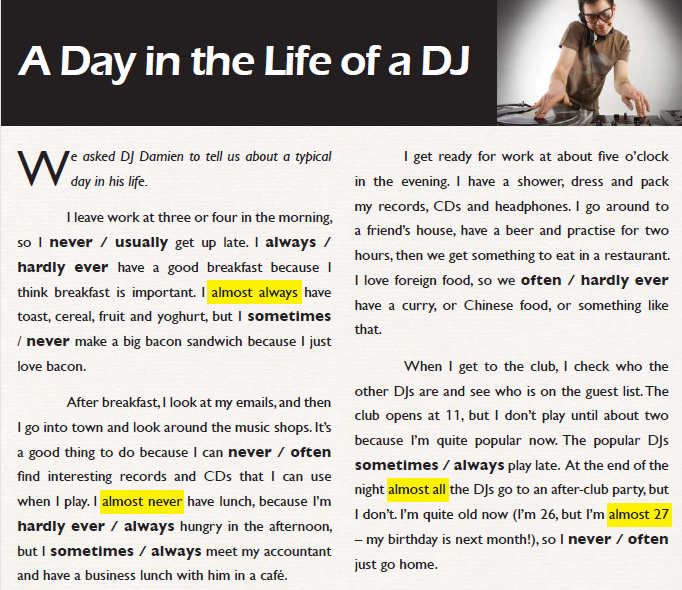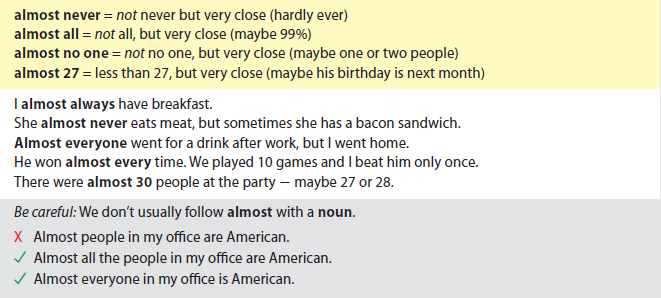Match the activities with the correct occupations.
have business lunches - read reports - leave work at 3 a.m. - make business decisions - get up late - have meetings with staff - get ready for work in the morning- get ready for work in the evening - go on business trips
Tell your partner which things from activity 2a you do.
Example I have meetings with staff, but I don't have business lunches.
C Tell the class about your partner’s answers.
Example Zena has meetings with staff, but…
Reading
Read the article and write Ttrue or False next to each statement below.

1 Damien finishes work in the morning.
2 Damien always has toast, cereal, fruit and yoghurt for breakfast.
3 Damien hardly ever has lunch.
4 Not all the DJs go to a party after the club.
5 Damien is 27 years old.
Find the highlighted words in the article and read the sentences they are in.
Does each pair of words below have the same (S) or a different (D) meaning?
1 almost always ----------- always
2 almost never ----------- hardly ever
3 almost all ------------ all
4 almost 27 ------------- 27
Language Focus
1 We call words like never, hardly ever, sometimes, often, usually, and always, adverbs of frequency. We use them to talk about how common it is for us to do something.

Questions and short answers

2 We can use almost in front of words like always, never, all, every, everyone, and no one. We can also use it in front of numbers.

Write the words in the correct order to make sentences.
1 almost / it’s / five o’clock It's almost fivve o'clock.
2 usually / mornings / the / tired / she’s / in
3 I / TV / almost / watch / never
4 always / office / work / almost / we / late / in / our
5 isn’t / Tim / for / often / late / meetings
6 business / I / trips / ever / go / on / hardly
7 you / buy / food / where / usually / do
8 for / work / ever / late / you / are
Use your notes to tell your partner about a typical day in your life.
Example I almost always get up at 6.30.
Listen to your partner, ask questions to get more information and make a note of what they say.
Example What do you usually have for breakfast?



